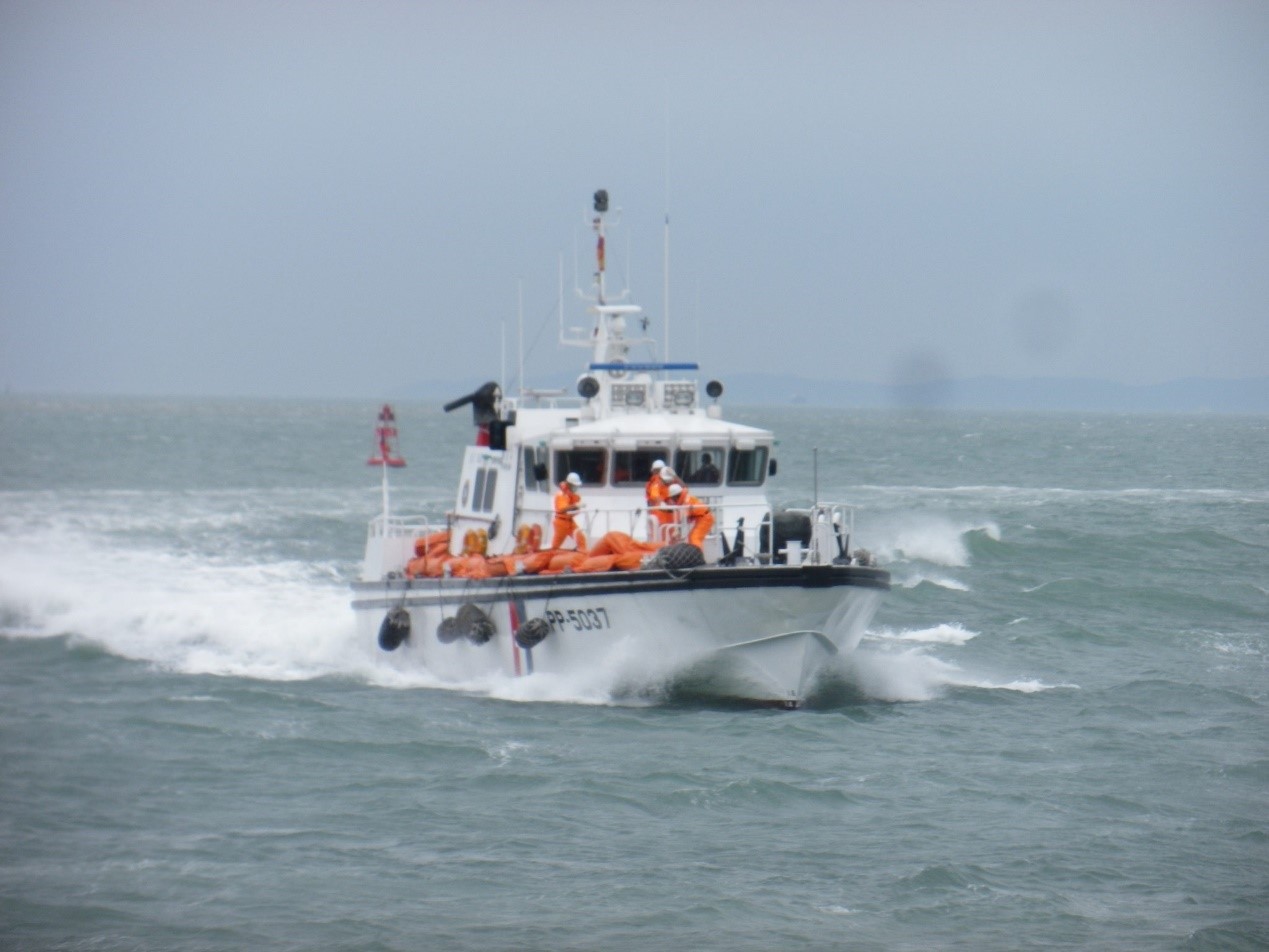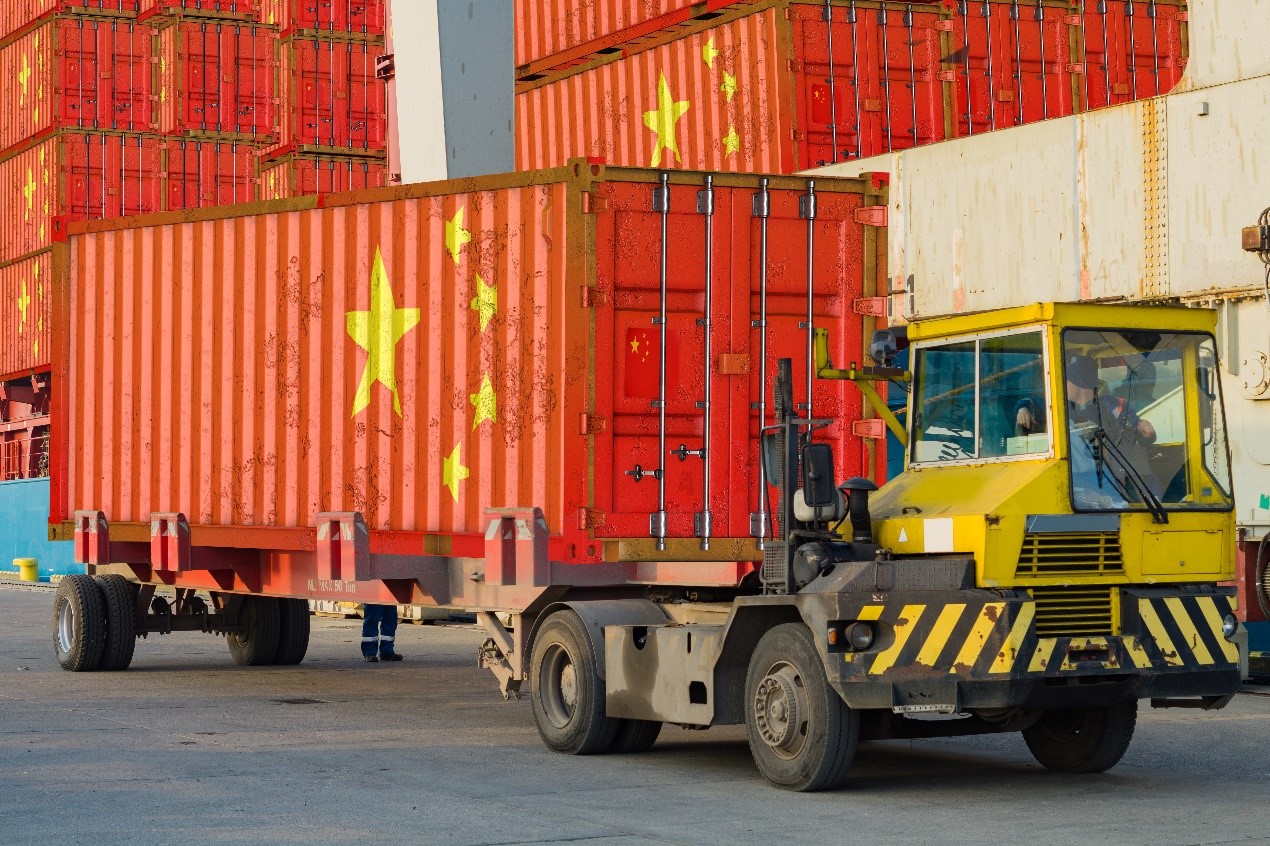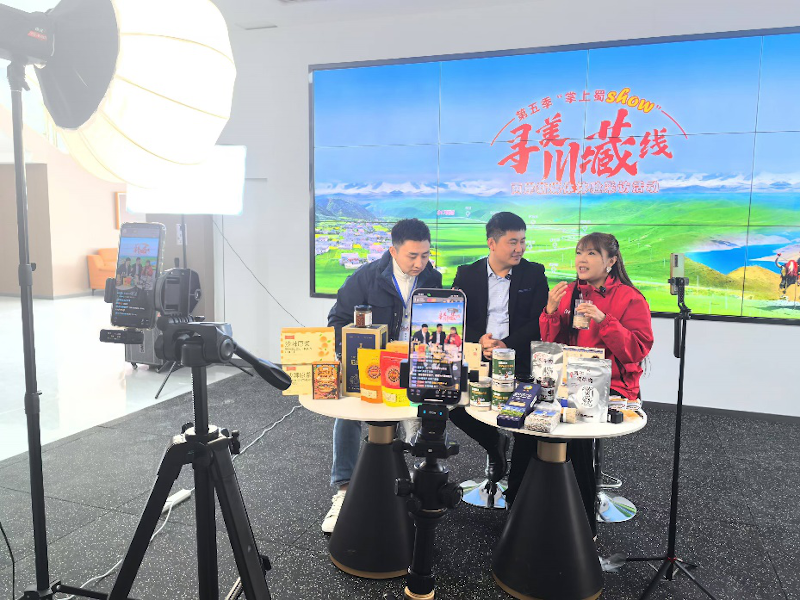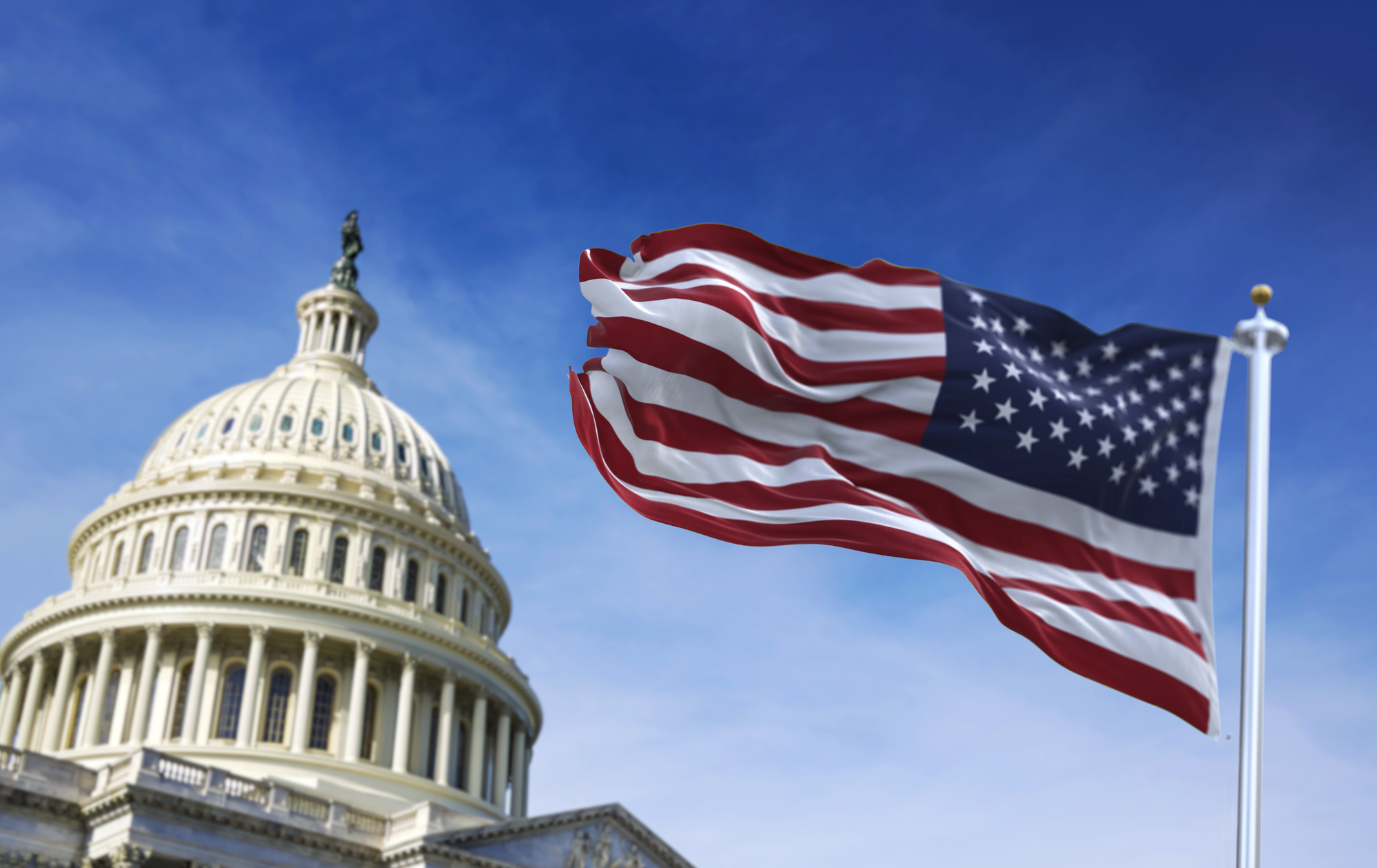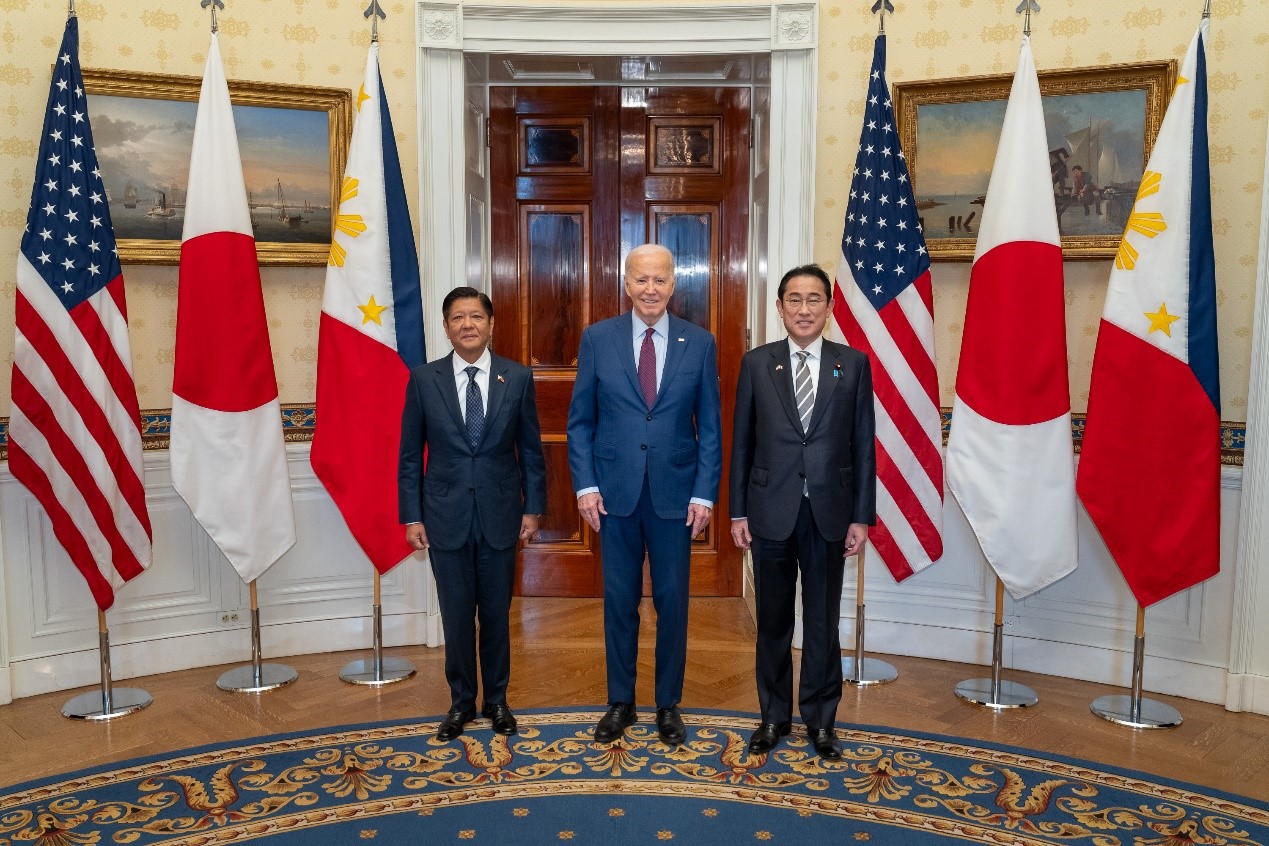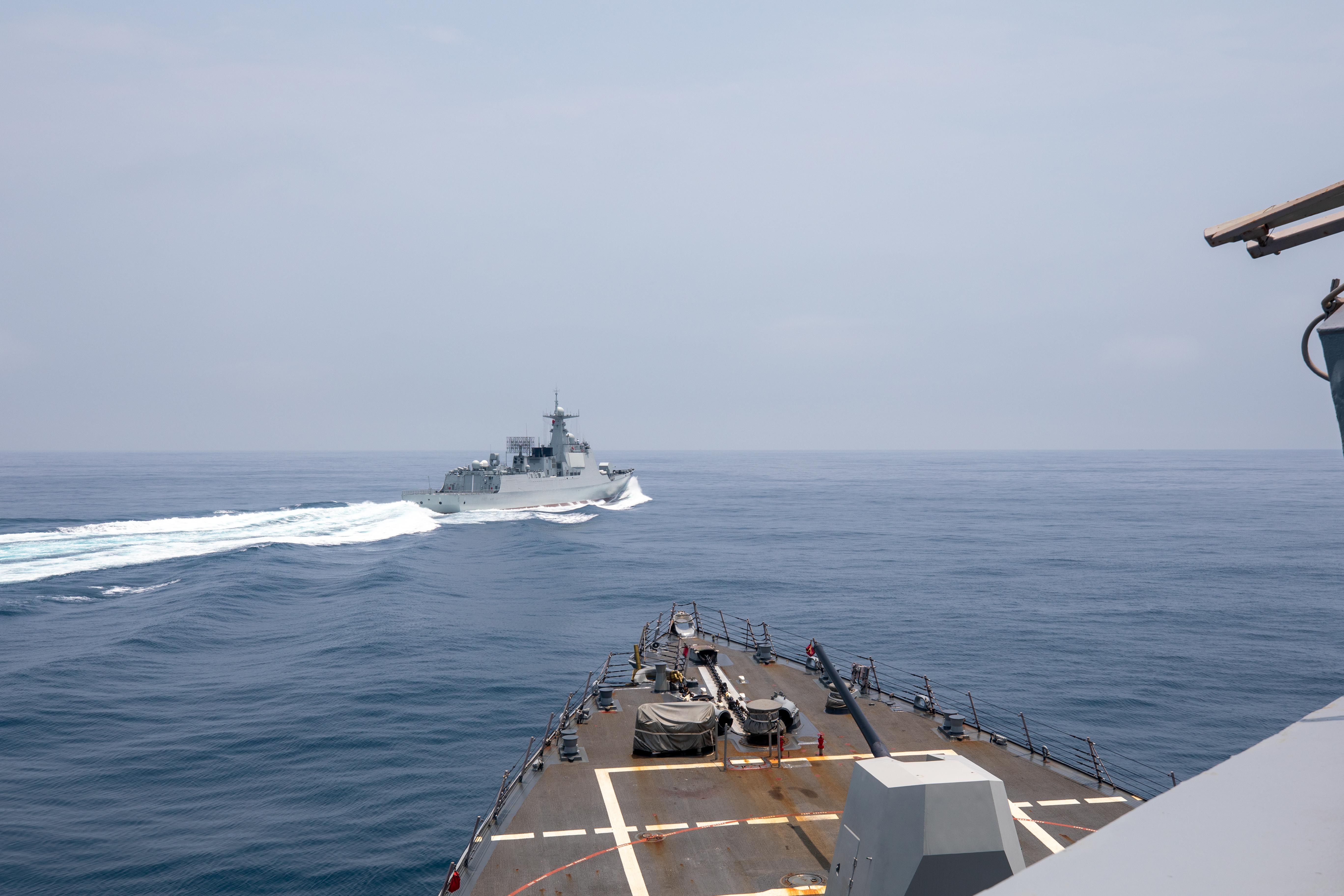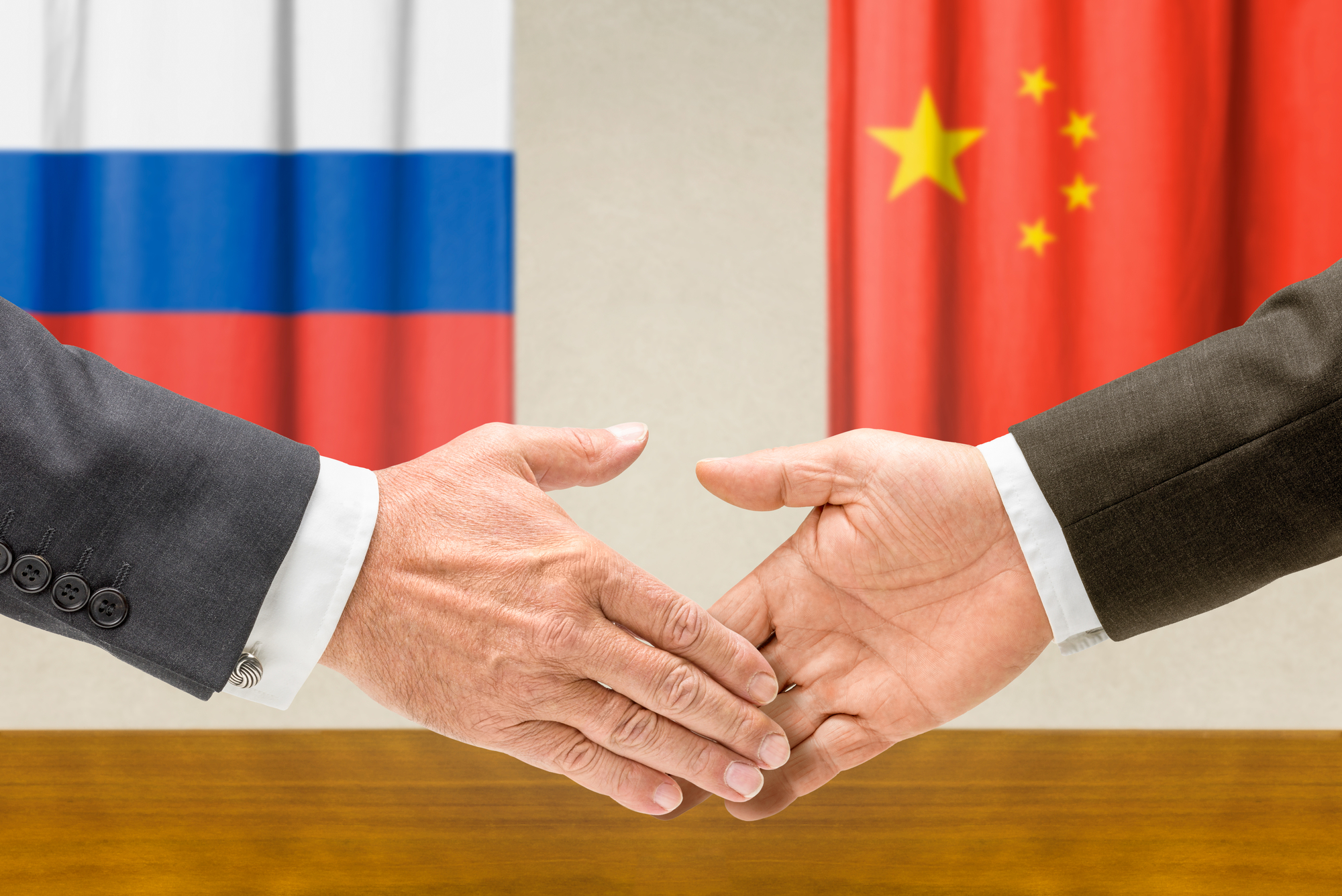China’s Claim of the Taiwan Strait as ‘Inland Waters’ and the Kinmen Incident
Beijing describes the boat capsizing incident as ‘vicious,’ denies Kinmen’s prohibited and restricted waters. Beijing’s recent actions are part of a long-term strategy to intimidate Taiwan through multi-faceted coercion. It ultimately aims to turn the Taiwan Strait into an internationally recognized “inland sea” within China’s territory. Picture source: 海巡署艦隊分署第九海巡隊, April 5, 2022, Facebook, https://www.facebook.com/photo/?fbid=284611017176107&set=pb.100068816336261.-2207520000.
Prospects & Perspectives No. 14
China’s Claim of the Taiwan Strait as ‘Inland Waters’ and the Kinmen Incident
By Cheng-fung Lu
Beijing describes the boat capsizing incident as ‘vicious,’ denies Kinmen’s prohibited and restricted waters
On February 14, 2024, the Taiwan Coast Guard reported that a Chinese fishing boat had illegally entered Taiwanese waters. The boat crew refused inspection, resulting in a chase that ended when the fishing boat capsized and all four Chinese fishermen fell into the sea. Two of the crew members survived, and two were pronounced dead at a Kinmen hospital. That night, Zhu Fenglian, spokesperson for China’s Taiwan Affairs Office (TAO), strongly condemned Taiwan’s conduct, describing it as a “vicious incident” that damaged cross-Strait relations during the Spring Festival.
The families of the deceased arrived in Kinmen to deal with the aftermath of the incident on February 21. They demanded that Taiwan bring the truth to light, apologize and compensate them for their deaths. On the same day, the two surviving fishermen returned to Xiamen. In interviews, the two accused the Taiwanese Coast Guard of hitting their boat, causing it to capsize.
China’s Coast Guard also announced that it would begin regular law enforcement patrols in the waters between Kinmen and Xiamen. It also boarded a Taiwanese tourist boat for inspection, alarming the twenty-odd passengers on board. The TAO remarked that China does not recognize any prohibited or restricted waters claimed by Taiwan in the waters between Xiamen and Kinmen. The Chinese People’s Liberation Army frequently uses its navy and air force to harass and intimidate Taiwan. Taiwan security experts have repeatedly warned that Beijing is trying to claim the Taiwan Strait as “inland waters.”
Taiwan’s various law enforcement bodies have long exercised their jurisdiction in the waters surrounding Taiwan
The dispute quickly attracted international attention as Beijing spread its narrative of the incident online. Official statements described the capsizing as a “malignant incident that resulted in the death of two fishermen,” contributing to heightened cross-Strait tensions. It stated: “We have told Taiwanese officials to respect fishermen on both sides of the Strait. It is a historical fact that there are traditional fishing areas in the Taiwan Strait. Taiwan must ensure the personal safety of mainland [sic] fishermen and effectively prevent such incidents from happening again.”
However, according the Coast Guard’s Operational Regulations on Sea Area Law Enforcement, Chinese fishing boats that enter restricted or prohibited waters in Taiwan without permission have historically been driven away. Violations involving smuggling, illegal fishing activities, obscuring or hiding a boat name, missing a boat name, or refusing to stop for inspection, may all result in measures such as detaining the boat, its items and personnel. Over the past eight years, the Taiwan Coast Guard has driven away a total of 9,000 Chinese fishing boats in the waters surrounding Taiwan and detained 400 boats. According to the Coast Guard Administration’s 2023 monthly performance statistics report, a total of 180 Chinese boats were driven away and 13 Chinese boats were detained last year. The Coast Guard stated that it has strengthened its service deployment in “hot spots” where Chinese vessels most frequently cross into Taiwan’s waters. Taiwan’s Cross-Strait Act also grants the Coast Guard the authority to combat illegal activities and strengthen punishments for serious infractions.
China unilaterally denies the median line in the Taiwan Strait and refutes that the Strait is part of international waters
In recent years, Chinese military aircraft and naval vessels have frequently crossed the median line in the Taiwan Strait. In late September 2020, Chinese Foreign Ministry spokesperson Wang Wenbin stated at a regular press conference that Taiwan is an integral part of China’s territory and that there is no so-called “median line.” Chinese media then reported that the median line is not recognized by any international law and therefore is not legally binding. In response, Taiwan’s Foreign Minister Joseph Wu condemned China’s approach to the median line as tantamount to destroying the “status quo” across the Taiwan Strait — just as Hong Kong’s national security law destroyed “one country, two systems.” On September 18, 2023, a total of 103 Chinese military aircraft flew in the Strait, of which 40 flew across the median line, breaching Taiwan’s southwest and southeast Air Defense Identification Zone (ADIZ). After the incident, Mao Ning, another spokesperson for the Chinese Ministry of Foreign Affairs, reiterated China’s position and denied any wrongdoing.
China has unilaterally changed the “status quo” in the Taiwan Strait. In addition to sending warships and aircraft to circumnavigate the waters and airspace around Taiwan, its two aircraft carriers also regularly sail through the Taiwan Strait. In early 2024, Japan’s Yomiuri Shimbun reported that the People’s Liberation Army had regularly deployed four warships around Taiwan. China responded that as the Taiwan Strait is not international waters, it has the right to send ships wherever it wishes.
Strategic competition between the United States and China has also become increasingly fierce. In meetings with senior U.S. national security officials, high-level Chinese state representatives have on several occasions expressed that the Taiwan Strait is not international waters and is part of China’s Exclusive Economic Zone (EEZ). In June 2022, Taiwan’s Ministry of Foreign Affairs published a fact sheet to refute Beijing’s claims. The Biden administration shares the same position as the Tsai administration, in that the Taiwan Strait constitutes international waters. Under the leadership of the Biden administration, leaders of European and Indo-Pacific countries have expressed support for the maintenance of peace and stability in the Taiwan Strait.
Conclusion
Beijing’s recent actions are part of a long-term strategy to intimidate Taiwan through multi-faceted coercion. It ultimately aims to turn the Taiwan Strait into an internationally recognized “inland sea” within China’s territory. Recent tactics to do so also include its unilateral announcement that the M503 commercial flight path used by Chinese airlines will move eastward, edging closer to Taiwan.
After the Chinese fishing boat capsized in Kinmen waters, U.S. State Department spokesman Matthew Miller indicated that the United States is paying close attention to Beijing’s actions and continues to urge all parties to exercise restraint and not unilaterally change the “status quo.” White House National Security Advisor Jake Sullivan also emphasized that “the message we continue to convey loudly and clearly” is to maintain peace and stability across the Taiwan Strait and oppose any action by any party that undermines peace and stability. On January 24, 2024, The United States Navy sailed its first warship through the Taiwan Strait following Taiwan’s presidential and parliamentary elections. The U.S. Navy officials said the destroyer USS John Finn transited through a corridor in the Taiwan Strait that was “beyond the territorial sea of any coastal state.”
The Taiwan Strait is more than 90 miles wide and has always been an important channel for international shipping and carries implications for economic stability in the region. As one of the world’s busiest waterways, it is a major commercial transportation route for energy and various other industries. Taiwan is also an epicenter for the production of semiconductors, which China relies on. As U.S. Secretary of State Antony Blinken said at the 2024 World Economic Forum in Davos, Switzerland, “The approach that China has shown in recent years has actually been totally counterproductive to their interests.”
(Dr. Lu is Associate Professor, Department of International and Mainland China Affairs, National Quemoy University.)


